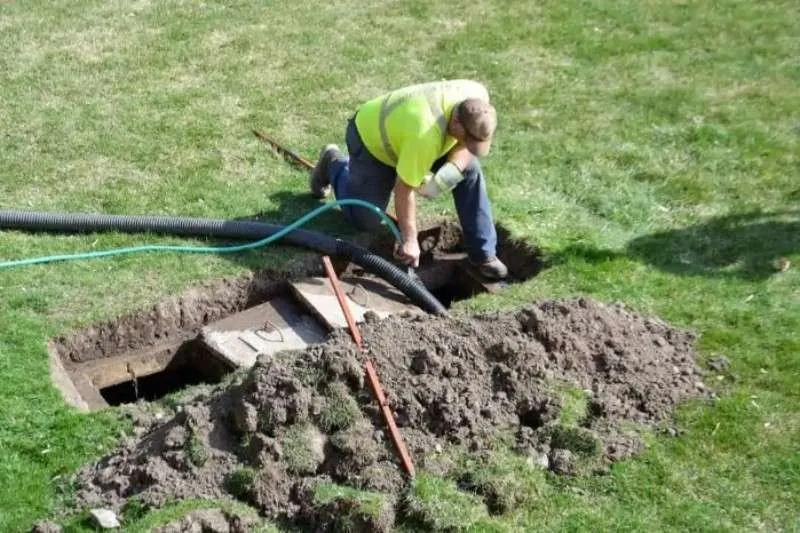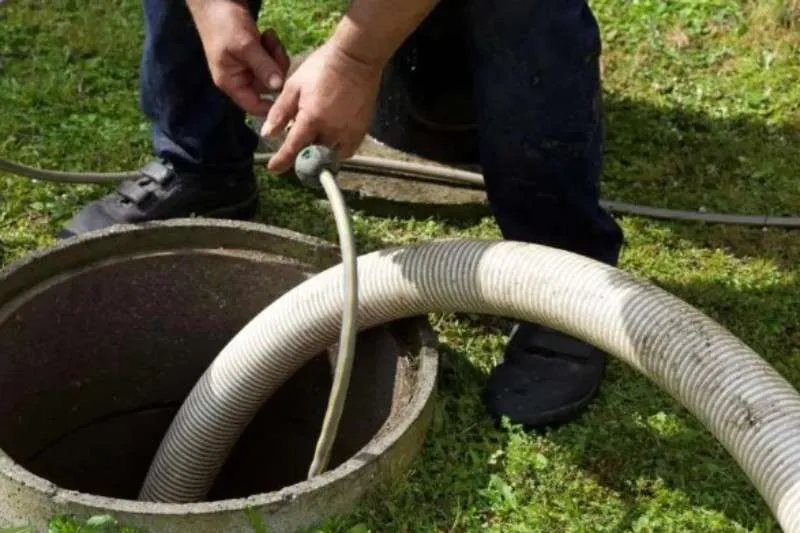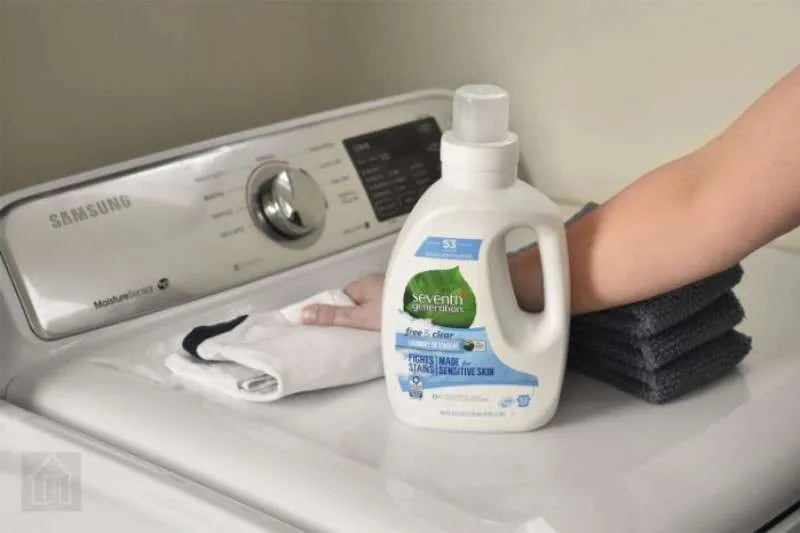Are you wondering if laundry detergent is safe in a septic system or on-site sewage facility? Knowing which products are best for your plumbing and septic systems can be hard, as many options are available.
Many people may think all laundry detergents are created equal, but they often contain chemicals and additives that could harm water quality from your taps or negatively affect the environment.
In this article, we’ll discuss why it’s important to opt for safe and environmentally friendly laundry detergents when dealing with a septic system so that you can ensure both cleanliness and sustainability.
Introduction to laundry detergent and septic systems
Laundry detergent is a necessary household item that helps remove dirt, debris, and odors from clothing. But when it comes to septic systems, not all laundry detergents are created equal. Is laundry detergent safe for use in homes with septic systems? The answer depends on the type of product selected.
Septic systems rely on a delicate balance of bacteria and enzymes to break down solids, oils, grease, and other debris. When this balance is disrupted, it can cause septic system backups, clogs, and other issues that could require costly repairs. For this reason, homeowners with septic systems need to select laundry detergents that are safe to use.
When shopping for your laundry detergents for a septic well, look for “septic safe” or “septic-tank friendly” products. These products are designed to break down quickly and safely without impacting the delicate balance of bacteria in septic systems. Additionally, you should avoid septic-safe detergents containing phosphates or chlorine bleach, as these can damage septic systems over time.
It is also important to always follow the manufacturer’s instructions when using laundry detergent. Overusing any product can increase the risk of septic system damage, so it’s best to measure and use the recommended amount of liquid laundry detergent each time you do laundry.
By selecting the right kind of laundry detergent, you can help keep your septic system healthy and avoid costly repairs. Always check product labels to ensure the product is safe for septic systems before using it in your home. You can enjoy clean, fresh-smelling laundry and a healthy septic system with some care and attention.
Understanding how laundry detergents affect septic systems

Laundry detergents are essential for cleaning your clothes, but how do liquid detergents and their use impact septic systems? Many laundry products and powdered detergents contain surfactants, enzymes, and other components that may interact with the environment of a septic system. It’s important to understand the risks posed by these detergents when properly maintaining a septic system.
Surfactants are chemicals that reduce the surface tension between two liquids or solids, making them easier to mix and allowing dirt and other particles to be lifted off surfaces during a wash cycle. These surfactants can lead to foam build-up in the tank, interfering with the normal biological process of breaking down solid waste. Additionally, if too much foam is produced, it can cause the tank to overflow, making a mess and potentially damaging your septic system.
Enzymes are also commonly used in laundry detergents to help break down proteins and fats in some soil types. While these enzymes can be beneficial for removing stubborn stains, they can also disrupt the balance of bacteria in your septic tank. When too many enzymes are present, they can reduce the microorganisms needed to properly break down solid waste.
The presence of other components in laundry detergents—such as bleach, dyes, or synthetic fragrances.—can also damage the septic system. Bleach, for example, can kill off beneficial bacteria responsible for breaking down solid waste and neutralizing harmful chemicals. Similarly, fragrances can interfere with the aerobic process of breaking down organic matter in the tank.
Choosing septic-safe laundry detergents
When using laundry detergent for septic use, many people are unaware of its effect on their septic systems. It is important to choose a detergent that is specifically designed for use in septic tanks. This will ensure the detergent won’t damage or clog up the already aerated septic system.
Characteristics of septic-friendly and biodegradable laundry detergents include low levels of surfactants, phosphates, and bleaching agents; biodegradable ingredients; non-toxic formulas. When shopping for laundry detergent brands, it is important to look for labels indicating the product is safe for septic and biodegradable.
Several recommended brands and types of traditional laundry detergent exist when choosing a septic-safe laundry detergent for septic systems. Seventh Generation is one of the more popular brands with their 4X Free & Clear Laundry Detergent and their Natural 4X Concentrated Laundry Detergent, both being safe for use in septic systems. Another great choice is Arm & Hammer Plus OxiClean Stain Fighters, which contains oxygen bleach and is septic-safe.
Using a safe liquid detergent for the se system can help keep the system running smoothly and avoid costly repairs or replacements in the future. If you have questions about whether a product is safe for your septic system, contact a professional for guidance.
When choosing a septic-safe laundry detergent, several brands and types of Tide laundry detergent are available. It is important to check product labels carefully to make an informed decision that will keep your septic system running properly. With the right septic-safe detergent, you can help ensure your system will remain in good condition for years.
Tips for using laundry detergent responsibly with septic systems
If you have a septic system, it’s important to consider how laundry detergent affects it. The good news is that you can use laundry detergent with your septic system without damaging it as long as you do so responsibly. Here are some tips to help keep your septic system safe when using laundry detergents for septic systems:
- Use the right amount of detergent for your laundry load. Too much detergent can overwhelm the septic system, while using too little can cause buildup in pipes and tanks over time. The best option is to read the instructions on the bottle and follow them closely.
- Try to spread out your laundry loads throughout the week. This will help minimize the stress on your septic system and give it time to recover between loads.
- Choose a detergent that is specifically formulated for use with septic systems. These detergents are designed to break down more quickly, which results in fewer clogs in pipes and tanks.
Following these tips and using the correct laundry detergent ensures your septic system remains safe and functional for years. If you have questions about how laundry detergents affect septic systems or need help maintaining yours, contact a qualified service provider.
Maintaining a healthy septic system while doing laundry

It is important to know if laundry detergent is safe for septic systems before you use it. The answer is yes but with a few qualifications and precautions. The ingredients contained in many of the popular brands of laundry detergents are designed to be safe for septic systems; however, these same ingredients can cause problems further down the line.
Excessive amounts of soap, bleach, and other harsh chemicals can lead to a drain field build-up that could clog up the system. Therefore, it is important to use laundry detergents in moderation and monitor water usage to help keep your septic system functioning properly.
Regular septic system inspections and maintenance are also key to optimal health. Septic systems must be inspected by a professional every 3-5 years and cleaned, if necessary, to ensure they operate properly and treat wastewater as intended. This should include checking the tank for any signs of damage or clogs that could cause further problems.
Finally, reducing household water consumption is necessary when dealing with a septic system. Excessive water usage can lead to clogged pipes, drains, and an overloaded septic tank. Limiting the amount of water used in day-to-day activities can help keep your septic system running optimally for many years.
FAQs
Can I use regular laundry detergent with my septic system?
It is possible to use regular laundry detergent with your septic system, though it is important to read the instructions on the bottle and follow them closely. Reducing water usage, spreading out laundry loads throughout the week, and using a detergent specifically formulated for septic systems can all help protect your system from damage.
What types of laundry detergent are safe for septic systems?
Septic-safe laundry detergents are designed to break down faster than traditional laundry detergents and contain fewer harsh chemicals. These detergents are specifically formulated for septic systems and can help reduce the risk of clogging or buildup in pipes and tanks.
How do laundry detergents affect the bacterial balance in my septic tank?
Laundry detergents can affect the bacterial balance in your septic tank. When used in excess, the surfactants in detergents can disrupt the natural bacteria balance, which is important for breaking down solid matter and treating wastewater.
Can I use bleach or fabric softeners with my septic system?
Bleach and fabric softeners should not be used with septic systems as they can cause problems such as clogging or buildup in pipes and tanks. Bleach is very harsh and can disrupt the natural bacterial balance in your septic tank. It is always best to stick with detergents specifically designed for septic systems.
How can I minimize the impact of laundry on my septic system?
To minimize the impact of laundry on your septic system, it is important to reduce water consumption from washing machines and use detergents specially formulated for septic systems. Spreading out your laundry loads throughout the week and using a low-flow washing machine can also help reduce strain on your system.
Are any eco-friendly laundry detergent alternatives safe for septic systems?
Yes, eco-friendly laundry detergent alternatives are safe for septic systems. These detergents typically contain fewer harsh chemicals and surfactants and can help reduce the risk of clogging or buildup in pipes and tanks.
How much laundry detergent should I use with a septic system?
It is recommended to use one-half to three-quarters of the amount of laundry detergent you would normally use with a municipal water system when dealing with a septic tank. Spreading your loads throughout the week and reducing water consumption is also important.
Can using the wrong laundry detergent cause septic system problems?
Yes, using the wrong laundry detergent can cause septic system problems. Detergents not specifically formulated for septic systems may contain harsh chemicals that could disrupt the natural bacteria balance in your tank, leading to clogs and other issues.
Conclusion
In conclusion, always use safe and environmentally friendly laundry detergent when dealing with a septic system. Some signs that the laundry detergent pods might not be eco-friendly include strong odors and colors, dyes, and chlorine bleach. A good way to ensure you choose the correct products is to read and check the label before use. Speaking to your local councils and experts will help you determine which concentrated liquid laundry detergent products are safe for use with your septic system.


